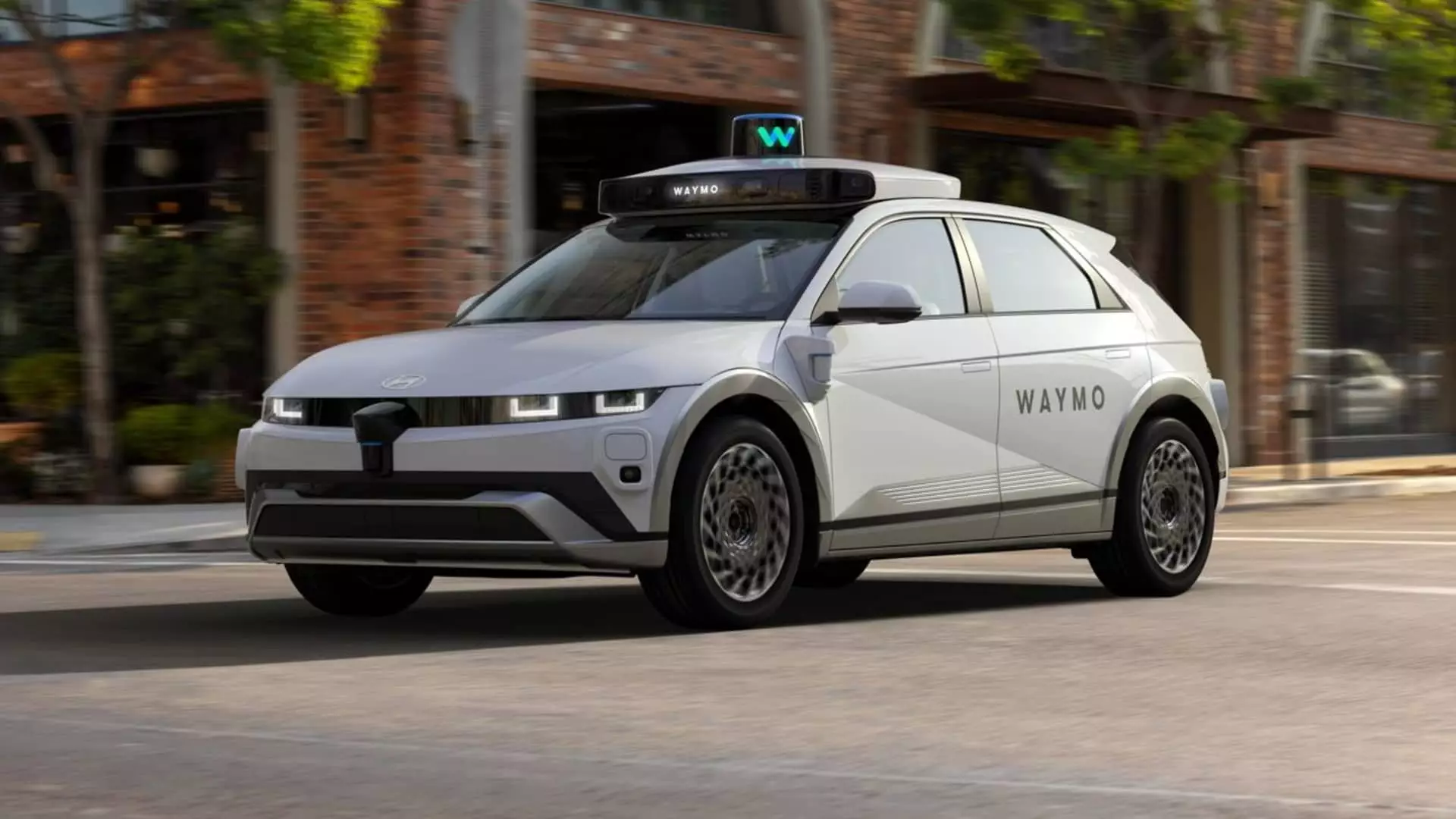In a significant development within the realm of autonomous vehicles, Hyundai Motor and Waymo have forged a strategic partnership that leverages the strengths of both companies. Announced on a recent Friday, this multiyear collaboration will see Waymo incorporating Hyundai’s Ioniq 5 electric vehicles into its expanding robotaxi fleet. This agreement underscores the escalating race among automobile manufacturers and tech companies to dominate the self-driving market, as well as the profound impact such partnerships can have on the future of urban mobility.
Waymo is on a continuous journey of evolution in its self-driving technology, most notably with its sixth-generation autonomous system known as Waymo Driver. Introduced only a couple of months prior to this partnership, this advanced technology is designed to handle a diverse suite of weather conditions while minimizing the need for expensive sensors and cameras. Such an enhancement is critical for the scalability of Waymo’s fleet of autonomous vehicles, aiming to create a more adaptable robotaxi service that meets the challenges of everyday driving. As the first company to offer a commercial robotaxi service in the U.S. and currently overseeing around 700 vehicles, Waymo One provides over 100,000 rides per week, positioning itself as a market leader amidst increasing competition.
The Ioniq 5 EV, Hyundai’s flagship electric model, will be manufactured at the new “Metaplant America” facility in Georgia. Following production, these vehicles will undergo specific modifications to ensure readiness for Waymo’s autonomous driving technologies, such as redundant hardware and other essential features necessary for driverless operation. Initial trials of the Waymo-augmented Ioniq 5 are anticipated to commence by late 2025, marking a crucial step toward broader deployment for consumers in subsequent years. Interestingly, while Waymo has explored collaborations with other automobile brands like Chrysler and Jaguar in the past, this venture signifies a new level of commitment to integrating sophisticated capabilities within mass-produced vehicles.
Hyundai’s Chief Operating Officer, José Muñoz, has reflected on the partnership’s potential for future collaboration. He highlighted that the current phase represents merely the inception of a more extensive relationship between the two entities. As both companies navigate the evolving landscape of autonomous mobility, the flexibility of their alliance may pave the way for innovative expansions and integrations, potentially reshaping transportation options for urban environments.
The collaboration between Hyundai and Waymo symbolizes a pivotal moment in the journey toward autonomous transportation. As self-driving technology develops and becomes more integrated into everyday vehicles, the implications for commuting, ride-sharing, and urban infrastructure are profound. As they prepare for on-road testing and eventual deployments, the industry watches closely, anticipating a transformative impact on how we think about mobility. With such partnerships, the evolution toward a future where autonomous vehicles coexist seamlessly with traditional modes of transport becomes more tangible than ever.

